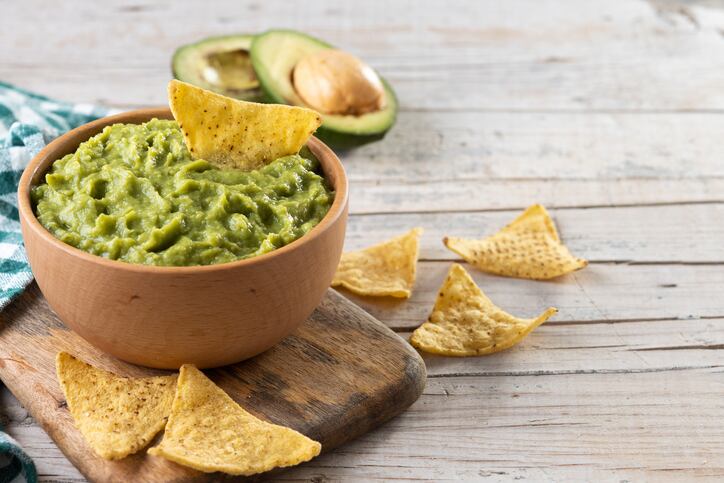PepsiCo is betting big on its “permissible portfolio” with a flurry of innovations focused on “no artificials” and positive nutrition as well as stepped-up marketing to help it overcome pressure from tariffs and slumping consumer confidence that have dragged down sales and volumes in North America in recent quarters.
While still early-days, CEO Ramon Laguarta said he is encouraged by improvement in organic volume trends for the company’s North American convenient foods business in the second quarter, which ended June 14.
He attributed the gains, which include market share in key subcategories, in part to the company’s three-prong strategy, including stepped up commercial activities, more-focused innovation and improved in-market execution.
“During the quarter, we took assertive actions to improve the future of profit performance of our North American convenient foods business,” Laguarta and CFO Jamie Caulfield said in joint prepared remarks.
Laguarta added in a call with investors yesterday that these actions and the sequential improvement they helped spur in the North American business should help the overall company return to the low-end of its long-term algorithm in the next three to four quarters.
“I don’t have a magic ball, but clearly the business is working on this,” he said. “We are becoming much more competitive in multiple sub-segments of the category, and we continue to be very granular in our investments, continue to increase our productivity, so we can bring back value and portfolio innovation.”
Marketing campaigns drive brand awareness of better-for-you options
The first prong in PepsiCo’s push to promote its permissible portfolio is a one-two marketing campaign punch.
To mark the 50th anniversary of the company’s iconic Pepsi Challenge, the brand this summer debuted a twist on the campaign: The Pepsi Zero Sugar Taste Challenge, which pitted its sugar-free option against Coke Zero Sugar in blind taste tests with consumers.
Simultaneously, PepsiCo continued its ‘Food Deserves Pepsi’ marketing campaign, and together they drove higher brand awareness, volume, net revenue and market share performance, Laguarta said.
As a result, “Pepsi Zero Sugar delivered strong double-digit volume and net revenue growth in the quarter and year-to-date, while Regular Pepsi also delivered volume and net revenue growth in the quarter and year-to-date,” he said.
In other better-for-you beverages, Laguarta said the company gained market share in sports drinks and enhanced water with “functional hydration offerings, such as Propel, continuing to deliver strong volume growth and double-digit net revenue growth in the second quarter and year-to-date.”
It plans to build on this momentum by increasing the away-from-home presence of zero sugar, functional hydration and sports nutrition.
Looking forward, the executives said, the company will optimize advertising and marketing spend to drive greater return on investment.
PepsiCo also will sharpen activations with improved visual identities, product claims and point-of-sale merchandising, including “greater precision on in-store placement” and digital communications.
Innovation: In with the good, out with the ‘bad’
The second prong in PepsiCo’s growth strategy is to accelerate innovation of better-for-you options, including removing ingredients consumers are avoiding and adding those they want.
Under pressure from state and federal regulators to remove artificial dyes, PepsiCo says it will remove artificial colors from foods sold in K-12 schools by the start of the upcoming school season. It also plans to “restage” Lay’s and Tostitos with no artificial colors or flavors by the end of the year and introduce extensions of Cheetos and Doritos without artificial colors or flavors.
As public concern about seed oil safety mounts, PepsiCo also will expand the use of avocado and olive oil across its portfolio.
It also plans to “enhance certain products with protein, fiber and whole grains later this year and into next year.” This includes within the Frito-Lay and Quaker portfolios and elevating brands that already are made with whole grains, like Sun Chips, which the company expects will deliver high-single-digit net revenue growth in 2025 and exceed $700 million in net revenue.
Innovation will also focus on enhancing value – through additional pack-price architecture and multipack assortments that increase portion-control options as well as accessible price points, according to the company.
Improved in-market execution
The third prong of PepsiCo’s plan to promote its permissible portfolio will focus on improving its in-market execution, which will further build on the company’s value proposition.
This includes expanding the assortment of value brands, like Santitas, and “rebalancing promotional depths and frequencies towards better everyday value,” according to the executives.
It also includes enhanced cost-reduction efforts, such as optimizing manufacturing, consolidating distribution where possible and “tightly” managing general and administrative costs.

